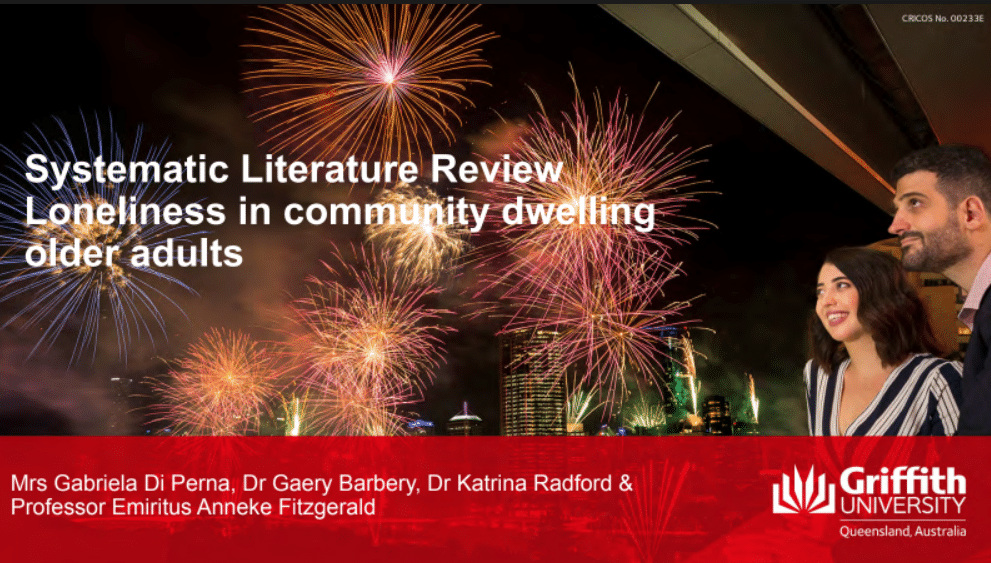SilVR Adventures attended the Australian Institute for Intergenerational Practice, or AIIP’s annual colloquium. Amongst the many great speakers who talked about loneliness and social isolation among community dwelling older adults, we thought of highlighting the findings of Griffith University’s Mrs Gabriela Di Perna and Dr Katrina Radford. They spoke about the different types of loneliness, what the potential causes are and where we can go from there.
You can find out more about the colloquium here.
The "Loneliness Pandemic"
It is no surprise that feelings of loneliness and isolation have greatly increased since the Covid-19 pandemic and the lockdowns that came with it. But many of us would be surprised to find that 1 in 3 Australians experiences loneliness even prior to the lockdowns. Experts also believe that this number is likely to increase in the near future if we don’t play a hand in curbing this.
The branches of loneliness
Research shows that loneliness is a complex feeling with multiple parts, but we can categorise it into 3 groups ; social loneliness, emotional loneliness and existential loneliness. Social loneliness comes from limited social connections and engagements. Emotional loneliness comes from a lack of close and intimate relationships. And existential loneliness is a feeling of being lost in the enormity of existence, and at a fundamental level alone.
The root cause
From what we can tell, emotional loneliness stems from a variety of factors. These factors include ageing, lower educational levels, cultural background and for some females, living with a partner could cause emotional loneliness. As for social loneliness, the factors that are common to emotional loneliness include ageing, educational levels and cultural background. However, there were other factors to consider such as unemployment, poor self-reported health and for some males, not living with a partner could cause social loneliness. The third type of loneliness, existential loneliness comes from poor health and loss of communication and meaningful interactions with loved ones.
Why does this matter?
Loneliness can have a lot of negative effects on older adults, and can play an influential role in our mental health and physical well-being. These effects include metabolic dysfunction, social disconnection, lower self-rated health, lower quality of life, mental disorders and depression. The many types of loneliness could potentially cause harm in the long run if necessary steps aren’t taken towards a change. SilVR Adventures has always focussed on the loneliness faced amongst aged care residents as studies have shown that aged care residents are very prone to loneliness and social isolation.
What can we do to help?
We can start with creating a more socially inclusive atmosphere amongst older adults. Due to their physical mobility constraints, catering to these social needs in their current environment would be beneficial. There are many innovative avenues to create a social atmosphere among older adults without the physical strain.
At SilVR Adventures reducing loneliness in aged care is at the core of what we do. And we’re proud to have taken thousands of older adults on shared virtual experiences around the world. It’s these shared experiences that 85% of our customers have said help to significantly drive social engagements. Whether it’s a trip to see the Aurora Borealis or the Great Wall of China, our experiences allows one to relive past memories and with that, exercise their thinking.
These shared experiences can help community dwelling older adults be in a more socially inclusive atmosphere and share experiences in the comfort of their community.
We’ve also been taking a look at loneliness on our weekly podcast – our episode with John Pollaers and Johanna Badcock of Ending Loneliness Together is a great place to start.
Contact us today to arrange a demo, and learn more about virtual reality can help combat loneliness for your older adults.


